At various times, readers have asked about other books I, as Director of the Center, have authored or edited. Since this is the only website I operate, I decided to add them to this site in a secondary position. This is important for some books – such as Assessing Cultural Anthropology and Remembrance of Pacific Pasts – which I expect to make open access for readers. Others – such as Making History and Yanomami – are still in print and can be obtained from the respective publishers. Developments in Polynesian Ethnology is being reprinted in electronic form by the University of Hawaii Press. Why a Public Anthropology – which involved an early, preliminary version of An Anthropology of Anthropology – has been rewritten for use with the Center’s Community Action Project. It is now primarily available to students and teachers who participate in that Project.
Additional
Books
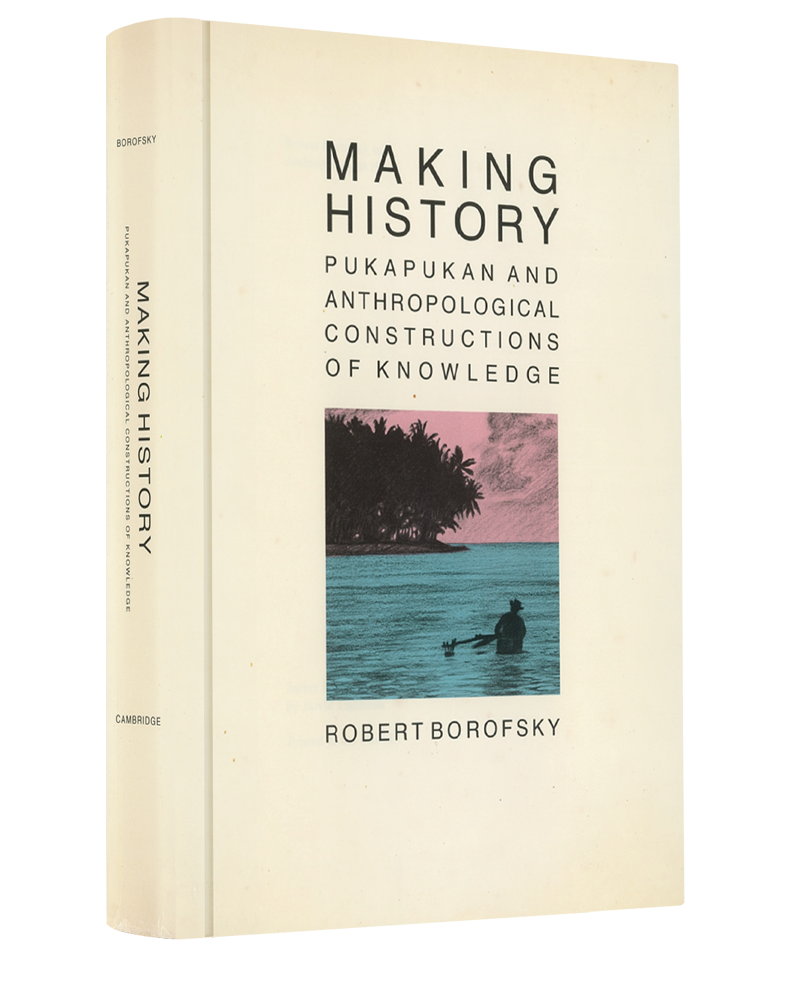
Making History: Pukapukan and Anthropological Constructions of Knowledge
by Robert Borofsky
“Robert Borofsky’s Making History [is] one of the most original and thought-provoking ethnographies I have read in some time . . . [it involves] parallel investigations of how ethnographer and native gather and validate knowledge, how they construct understandings of a culture’s past and present, and how these understandings influence each other . . . always provocative and incisive . . . Making History offers a great deal to think about.”
James Howe, Pacific Studies
“One of the finest [discussions] in the literature on the relationship between social context and the acquisition of knowledge . . . It raises significant questions about the uses and meaning of the past both to Pukapukans and to ethnographers. There is much to learn from here.”
Richard Price, Journal of American Folklore
“This ethnographic contribution has a brevity, simplicity, and charm that mask the sophistication, the scholarship, the masterly handling of highly complex material, and the sheer hard work that went into its preparation and writing.“
James Ritchie, The Contemporary Pacific
“By locating . . . problems [of knowing] substantively in Polynesian ethnography, the author adds an important chapter to arguments about ethnographic validity and authority.”
Ivan Brady, American Anthropologist
“Borofsky breaks new ground in the study of sense-making . . . and toward a comparative epistemology . . . He has not only made an original contribution to the study of tradition as a continuously modified understanding, he has opened the door to a new room: the study of the development of ideas as situated in complex and interacting sociohistorical processes.”
Roland Tharp, Anthropology & Education Quarterly
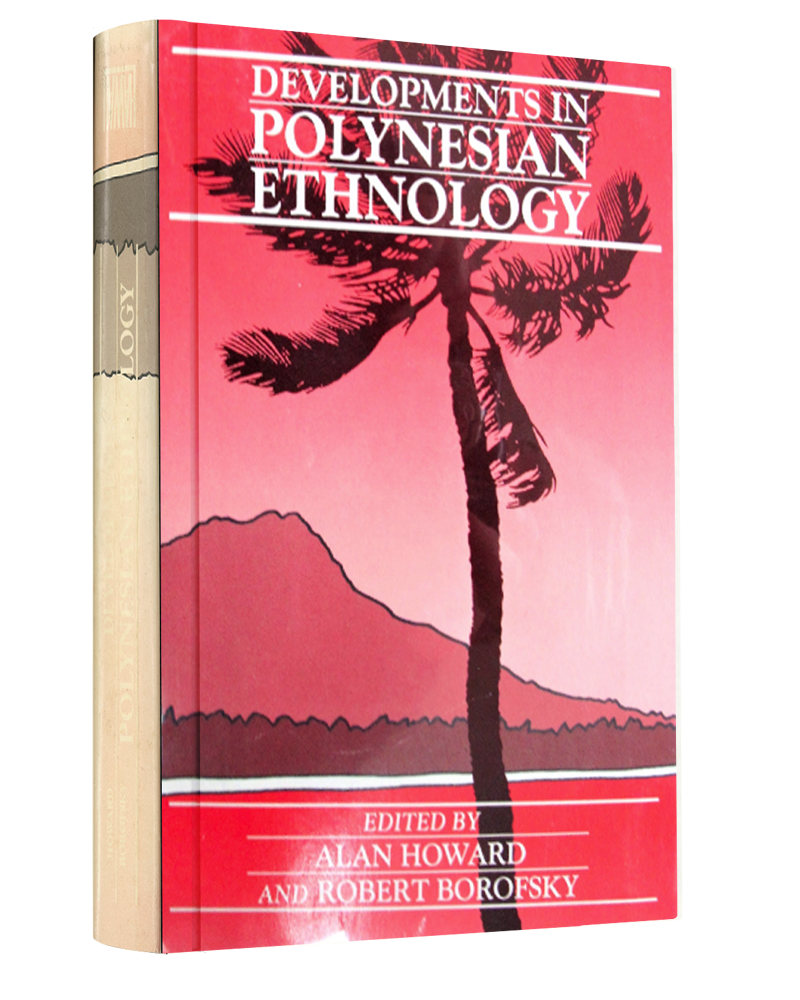
Developments in Polynesian Ethnology
Edited by Alan Howard and Robert Borofsky
“If Borofsky and Howard are right that ‘the hallmark of good research is that it generates new questions,’ this book is a success . . . Developments in Polynesian Ethnology should be both a useful retrospective and a stimulus to further research in the years to come.”
Richard Feinberg, American Anthropologist
“This important book brings the venerable heritage of Polynesian ethnography fully up to date and relates it to the important issues in contemporary anthropology. Its integrated retrospective reviews of what has been done and its delineation of promising directions for future research by the leading active workers in contemporary Polynesian studies will make it possible for both young and mature scholars to turn again to a consideration of this unique quarter of the world with a renewed sophistication and to share in the authors’ mood of ‘excitement and intellectual ferment’ about what is being done and yet to be done.”
Robert Levy, University of California, San Diego
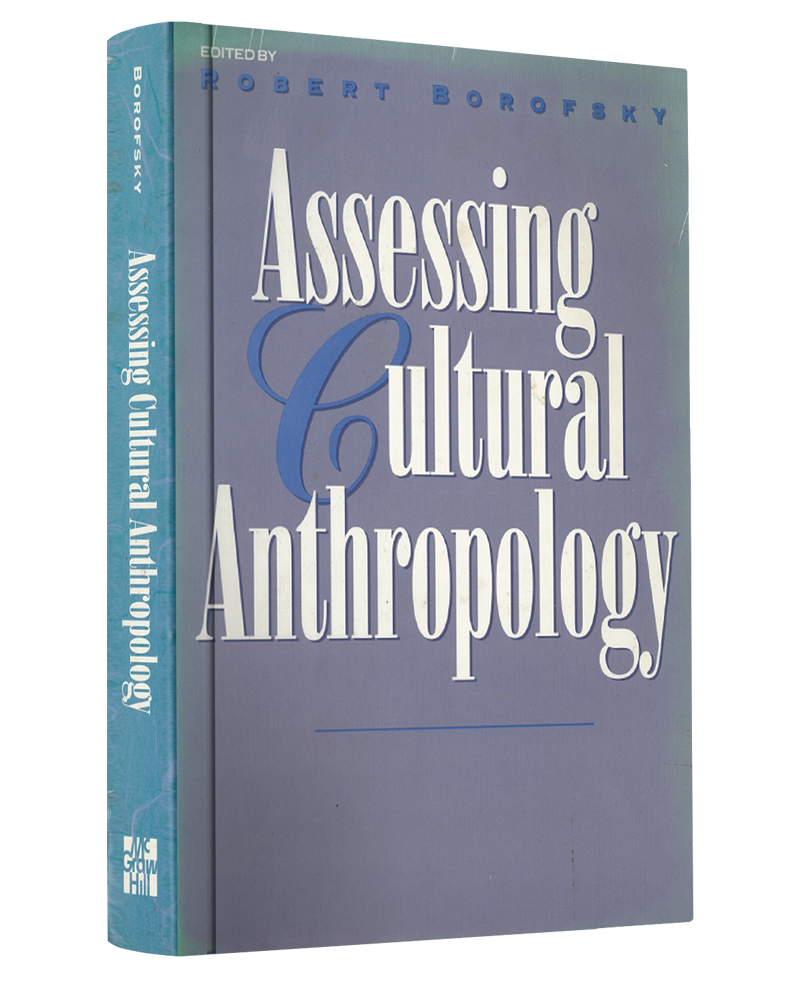
Assessing Cultural Anthropology
Edited by Robert Borofsky
“Assessing Cultural Anthropology is a dynamic volume, one which will be useful and used for some time to come. The volume presents the diversity of anthropology to its practitioners, both students and accomplished scholars, in a way that encourages reflection and forthright dialogue on the place of anthropology in the contemporary world. The profession will benefit tremendously from this work. Students will gain insight into an overview of the discipline working through this volume that they would seldom gain in a single course. Herein are the materials to assess the present state of the field.”
Janet Keller, Editor, American Anthropologist (1990-93)
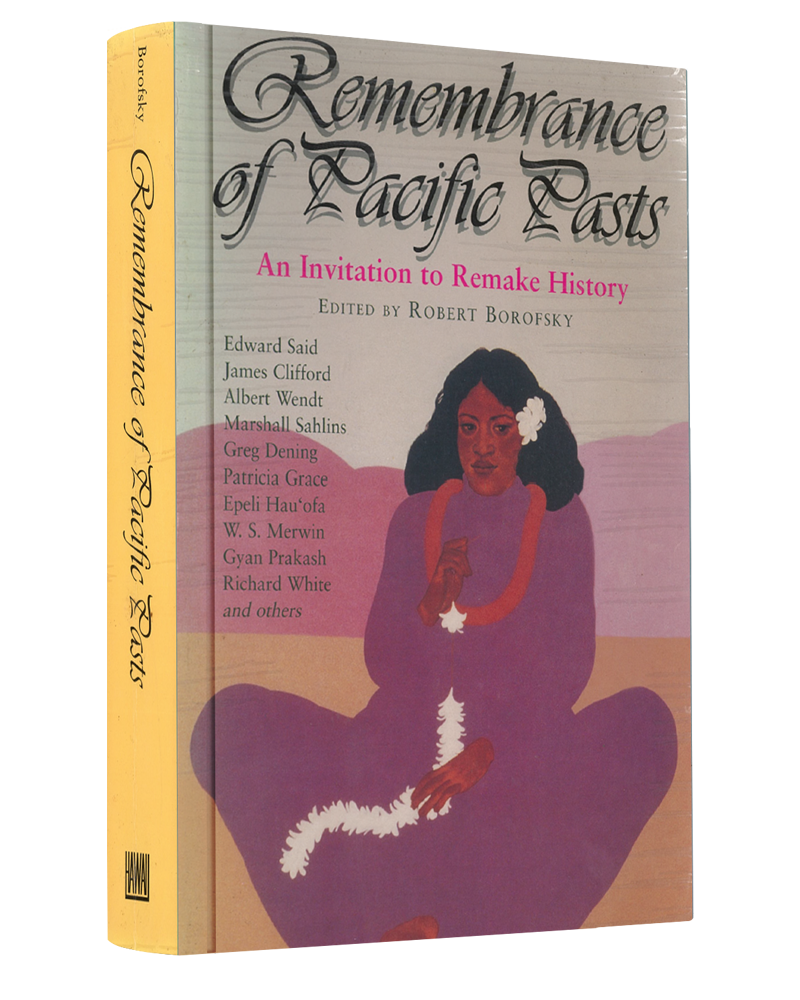
Remembrance of Pacific Pasts:
An Invitation to Remake History
Edited by Robert Borofsky
“History is always interpretation. The French Revolution as told by an aristocrat and by a sansculotte are not the same. The problem is how to bring these different views together in a way that makes sense of the whole. Rob Borofsky wonderfully succeeds at this difficult task. He turns widely different points of view into an asset. The narrative ceases being linear. We have instead a multidimensional history that the reader must approach from several angles and the meaning of which, like that of a musical piece, is apprehended globally. Remembrance of Pacific Pasts is a very impressive and important work.”
Claude Lévi-Strauss, Collège de France, Paris
“Remembrance of Pacific Pasts is brimming over with new ideas about how history can be found, rethought, understood, and told. The worlds of the Pacific emerge over several centuries in the hands of these talented writers, some celebrated historians and anthropologists, some just making their mark. Whether set in Samoa, Fiji, Hawaii, Papua New Guinea or elsewhere, each fascinating essay has resonance for questions being asked by scholars everywhere. Rob Borofsky’s edited volume is multicentered, dialogic history at its best.”
Natalie Zemon Davis, Princeton University
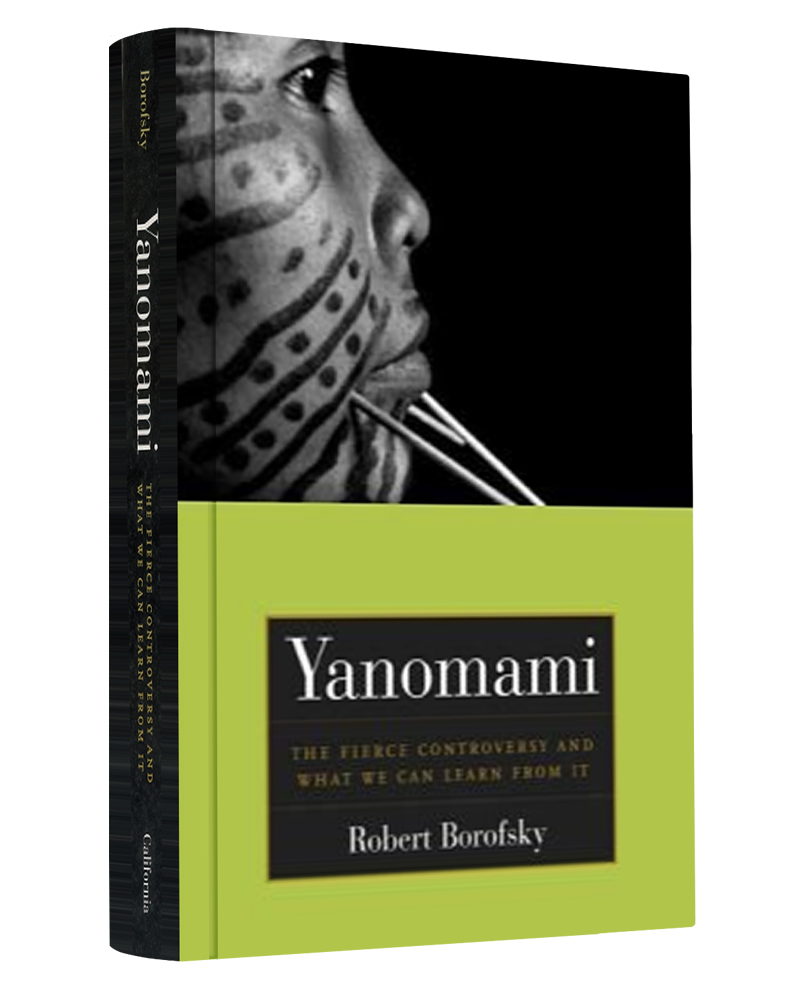
Yanomami: The Fierce Controversy
and What We Can Learn From It
Edited by Robert Borofsky
“In the form of an inquest on the Yanomami controversy, Borofsky lets all sides and the AAA be heard in their own words, creating a context where no reader is left to be carried away by any one set of arguments. . . . Marvelous for undergraduate and graduate teaching . . . equally suited for reflective reading and class discussion, this book will forever change my teaching of anthropology.”
Fredrik Barth, Boston University
“The discipline of anthropology has a great debt to Rob Borofsky . . . Yanomami is not only a great teaching tool, one shaped by the input of students, it is also a cautionary lesson that should be read by all scholars and journalists who work across gradients of class, culture, and language.”
Paul Farmer, Kolokotrones University Professor, Harvard University
“If there is one book that redefines anthropology for the 21st century, this is it. . . . Using the Yanomami controversy as a lens for examining anthropology itself, Borofsky asks anthropologists – from introductory students to advanced scholars – how we should craft the values that define our work and ourselves.”
Carolyn Nordstrom, University of Notre Dame
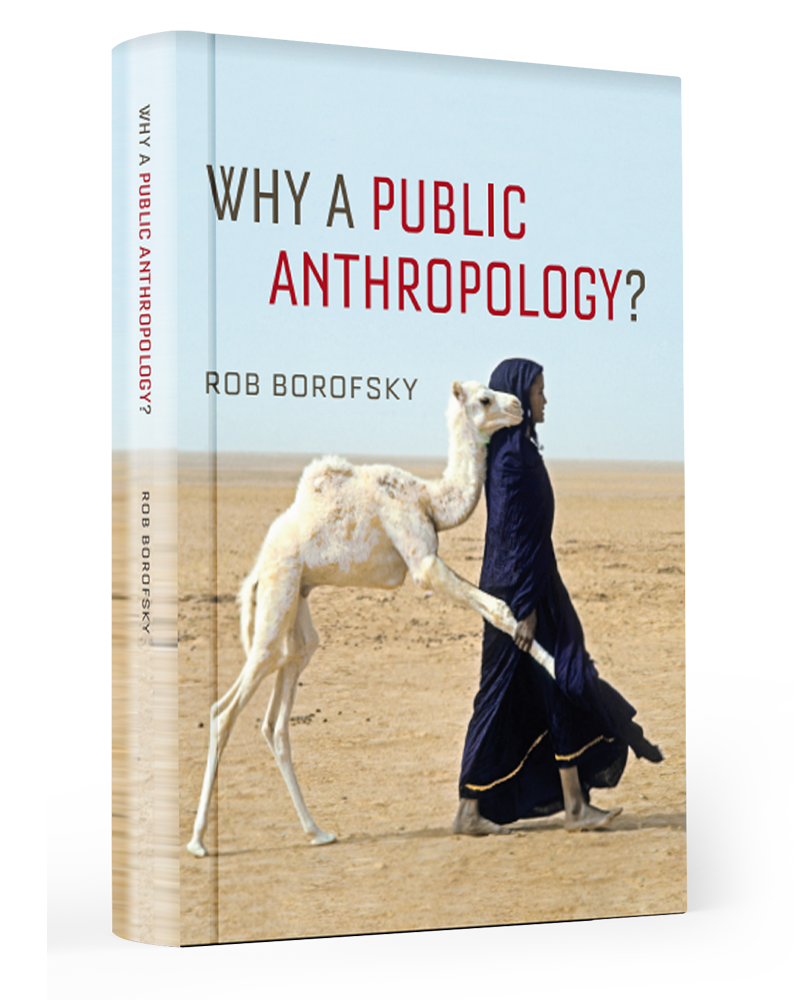
Why a Public Anthropology?
by Rob Borofsky
“This provocative study sets ambitious goals for what might be achieved by a public anthropology and offers ways to carry forward a project that could be far-reaching in its consequences. The main sections of the book are currently only available to students and teachers who participate in Public Anthropology’s Community Action Project.”
Noam Chomsky, Institute Professor, MIT
“Rob Borofsky helps us see anthropologists, and by implication most social scientists, in a new light. Why do they publish so much but seldom agree? Does social or cultural anthropology make progress, or does it merely rehash old questions? Borofsky addresses these issues candidly and offers ways to renew the social sciences and improve their efforts to address critical public problems.”
Boyce Rensberger, Former Science Editor, Washington Post
“Rob Borofsky delivers a gem of a resource for anyone interested in anthropology, especially students of the field. Part polemic and part review of vexing problems in the discipline, Why a Public Anthropology? offers a critique (one to which other social sciences are also vulnerable): the discipline’s history of producing new knowledge without building upon foundational theories; and its consequent reluctance to engage in activism on behalf of the communities and societies granting the privilege of studying them. Borofsky’s final message is one of transformation: he calls on those both within the discipline and without to practice anthropology in service of the public—to not simply “do no harm,” but to do good.”
Paul Farmer, Kolokotrones University Professor, Harvard University